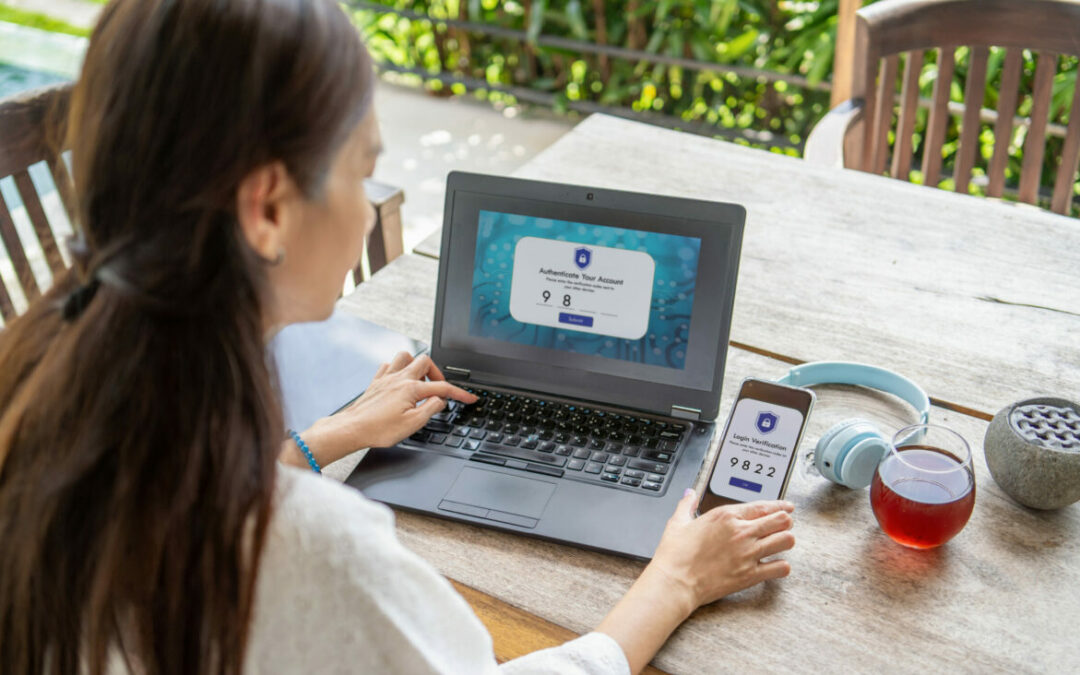In our technology-driven world, digital communication – primarily through email and text messages – has become integral to both personal and legal interactions. For those navigating the turbulent waters of divorce, these electronic channels play a crucial role. They not only facilitate communication with your attorney but also between you and your spouse or co-parent. However, these same channels can be a double-edged sword, potentially exposing sensitive information if not properly secured. Here’s a guide to protecting your digital communications during divorce proceedings.
1. Change Your Passwords Immediately
One of the first steps you should take after initiating a divorce is changing all your passwords. This is crucial regardless of whether you suspect your spouse might attempt to access your accounts. Choose complex passwords that are difficult to guess and do not use any easily identifiable personal information. This simple yet effective measure can prevent unauthorized access to your email, social media, and other important accounts.
2. Enable Two-Step Verification
To further secure your accounts, enable two-step verification. This additional layer of security requires not only your password but also a second form of identification, such as a code sent to your phone. Two-step verification makes it significantly harder for someone to access your accounts, even if they manage to obtain your password.
3. Log Out of All Devices
After changing your passwords and setting up two-step verification, log out of all devices. This includes any computers, smartphones, or tablets that you may have used. By doing so, you prevent any previously logged-in devices from accessing your accounts without your knowledge.
4. Review and Remove Unknown Devices
Check the list of devices connected to your accounts and remove any that you do not recognize. This will help ensure that no unauthorized devices have access to your information. Most major email and social media platforms offer features that allow you to review and manage connected devices.
5. Use Personal Email Addresses Only
Avoid using your work email for personal or legal matters. Your employer typically has access to your work email, and it could be subject to a subpoena. Instead, use a personal email account for all communications with your attorney. This ensures that your private communications remain confidential and are not inadvertently disclosed to your employer.
6. Avoid Copying Third Parties on Attorney-Client Emails
It might seem practical to include your real estate agent or family members in emails with your attorney, but this can have significant drawbacks. Third parties are not covered by attorney-client privilege, which means that their involvement could lead to these communications being disclosed to the opposing party. To maintain confidentiality, keep your attorney-client communications between you and your attorney.
7. Be Cautious With ‘Reply All’
When replying to emails from your attorney, ensure that you are not inadvertently copying unintended recipients. While the BCC feature helps prevent unauthorized replies, mistakes can happen. Always double-check the recipients of your replies to avoid accidentally waiving the confidentiality of your communications.
8. Monitor Your Cloud Storage
If you share a cloud storage account or Apple ID with your spouse or partner, it’s essential to create a separate account immediately. Shared cloud storage can lead to unintentional exposure of your private communications, including those with your attorney. By setting up a new account, you can ensure that your personal data remains secure.
9. Avoid Deleting Information
Although it might be tempting to delete social media posts or emails to protect your privacy, this could be seen as evidence tampering. Deleting information could lead to accusations of attempting to hide evidence. Instead, secure your data by changing passwords and settings, and consult with your attorney before taking any action that might affect your case.
Conclusion
Protecting your digital privacy during a divorce requires vigilance and proactive measures. By securing your accounts, being mindful of how you handle communications, and avoiding actions that could be misinterpreted, you can safeguard your information and maintain control over your private data. Always consult with an experienced divorce attorney like Lommen Abdo for guidance tailored to your specific situation to ensure that your digital communications remain secure throughout the legal process.

